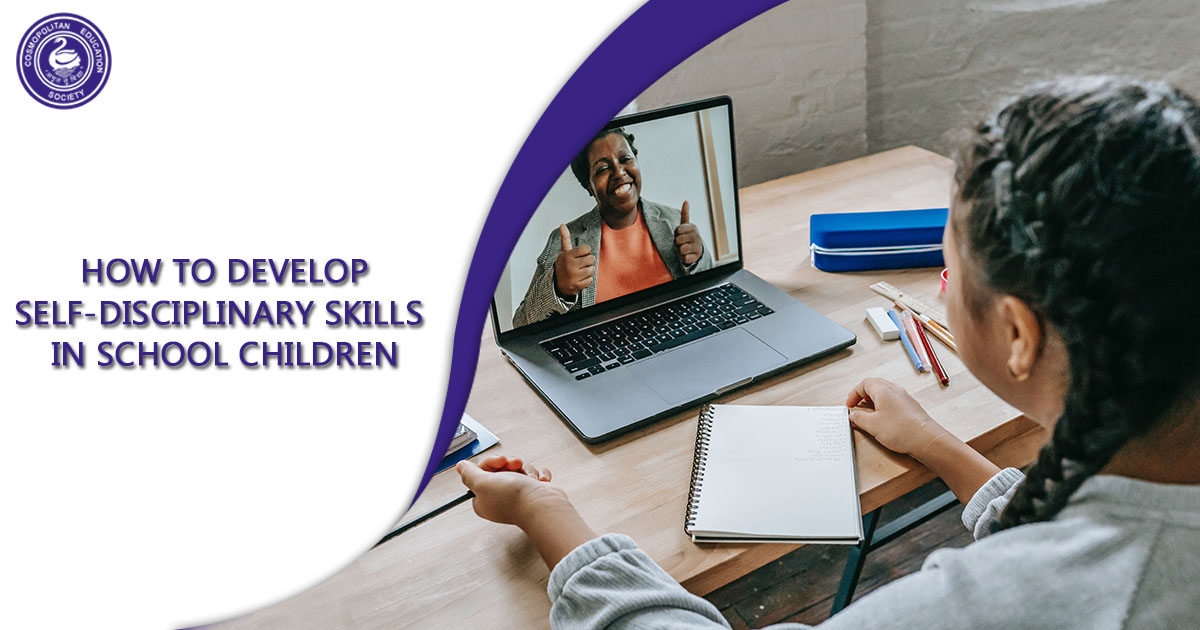
Developing Self-disciplinary Skills in School Going Children
Self-discipline plays a vital role in one’s life. Discipline helps an individual to frame a personality for oneself. Training for discipline that is given to an individual in its tender age, helps a child to decide a part for it himself and try and walk on it throughout his life. Self-disciplinary training can have the most basic training like being punctual on time to making wise usage of time at any point in life.
The best time to start with this training is when the children start going to school. School has a major impact on every child’s life and things that are learned in school stays with them throughout their life. Because of this everyone around these growing kids which includes their parents, guardians, teachers should be guiding them on their way of conduct.
Following are the ways in which self-discipline can be incorporated within children:
1. Have a fruitful discussion with children about education.
It is important to tell children why studying is important and how it will be helpful to them to build their future. Kids should be guided correctly about how studies will be a bridge between them and their goals. Say for example a kid might want to be a Chartered Accountant or an actor but would not be knowing how they can be one. In that case it is important to tell them what and how they should study to achieve this goal. They can be shown and told various real-life stories to keep them motivated and moving towards their goal. Having a cordial discussion with children will not only motivate them but will also add confidence in their thinking.
2. Divine his abilities and help him in studying
One should remember that every child is different and might have different interests, and they should not be generalized nor compared to other children. It is important to understand that every individual is different and has different talents, abilities and interests. We should try to identify and understand the child’s interests and guide them according to their abilities.
3. Fix a timetable
To make the child understand the importance of time, the best way which can be opted for is to set a timetable for the child and make them follow it for some time till a time it becomes their routine. In such a way one can teach them to divide and balance time between different activities like studying, playing and various different activities.
In this way one can also give more time to subjects or activities which the child might struggle in, which will not only give the child more time to practice it but it will also help to gain confidence in it.
4. If the child is too restless or annoyed use different techniques
There are various techniques through which one can not only calm down the child but it will also help to gain focus back into the activity.
A human brain (adult) can pay attention to a task for 2 hours with 15-30 minutes break in between. So when it comes to small children we need to ease out a bit. One common technique that is ideally followed is 30 minutes of study and then 5-10 minutes of rest and then again begin with the study. This not only reduces the restless ness in the child but also increases the concentration.
This is one of the techniques there are various other techniques which can be used to improvise concentration but also grow interest in the activities.
5. Use Leisure time wisely
In their free time the child should be allowed to do whatever they want to. They can be directed to cultivate some hobbies which they can pursue in their free time. This would not only relax their mind but also, they would have something to do outside studies. If the child is doing his/her studies well and completing all the activities which are to be done, you should not be bothered about what they are he/she is doing in their free time.
Summing up:
Through these child discipline methods and techniques, it will be possible to cultivate a proper routine, and the child will start to study with passion. The only thing we have to look at is, we have to guide them appropriately as they are the upcoming generations. More than anything cultivating a positive attitude in children is critical for overall development.
